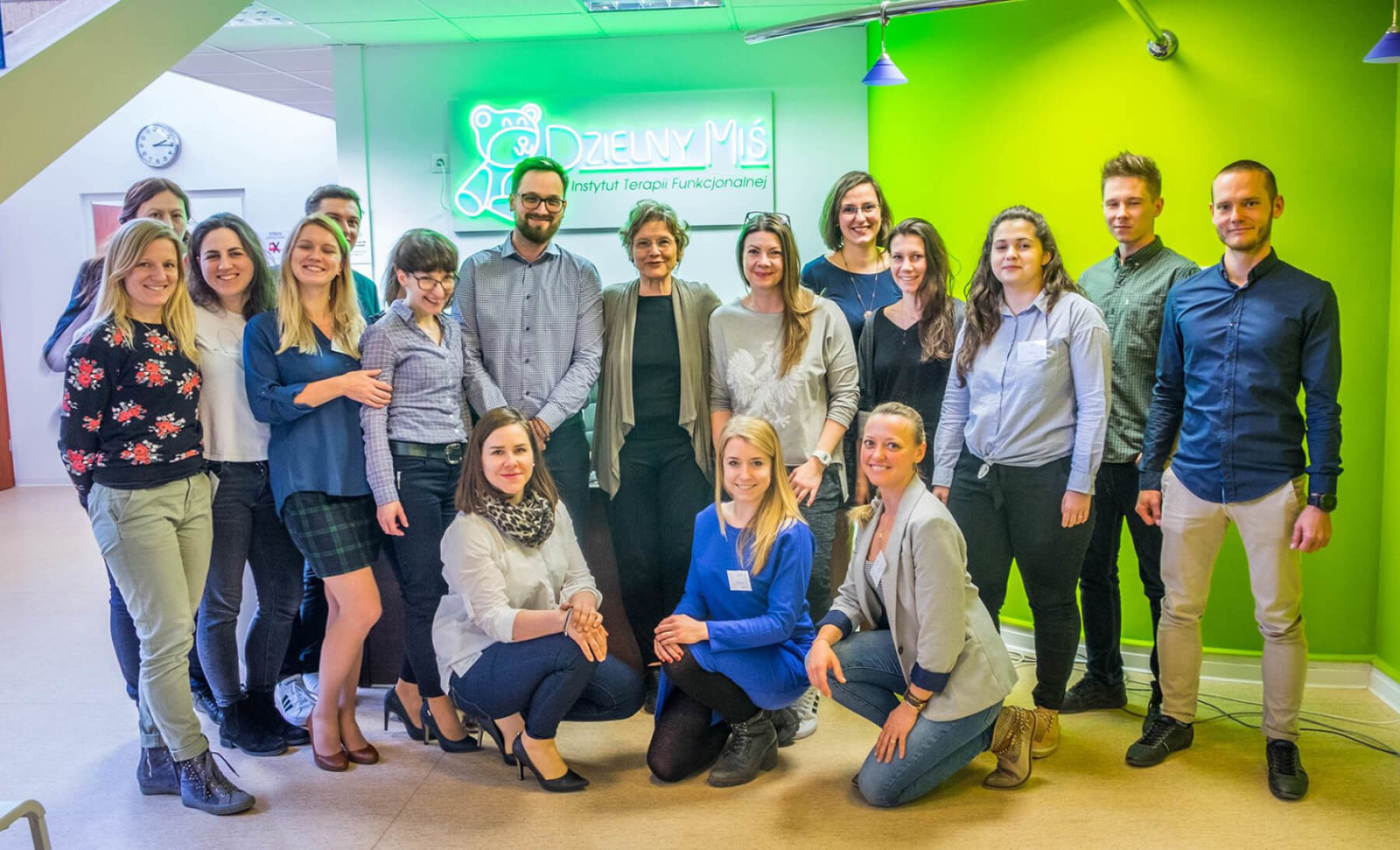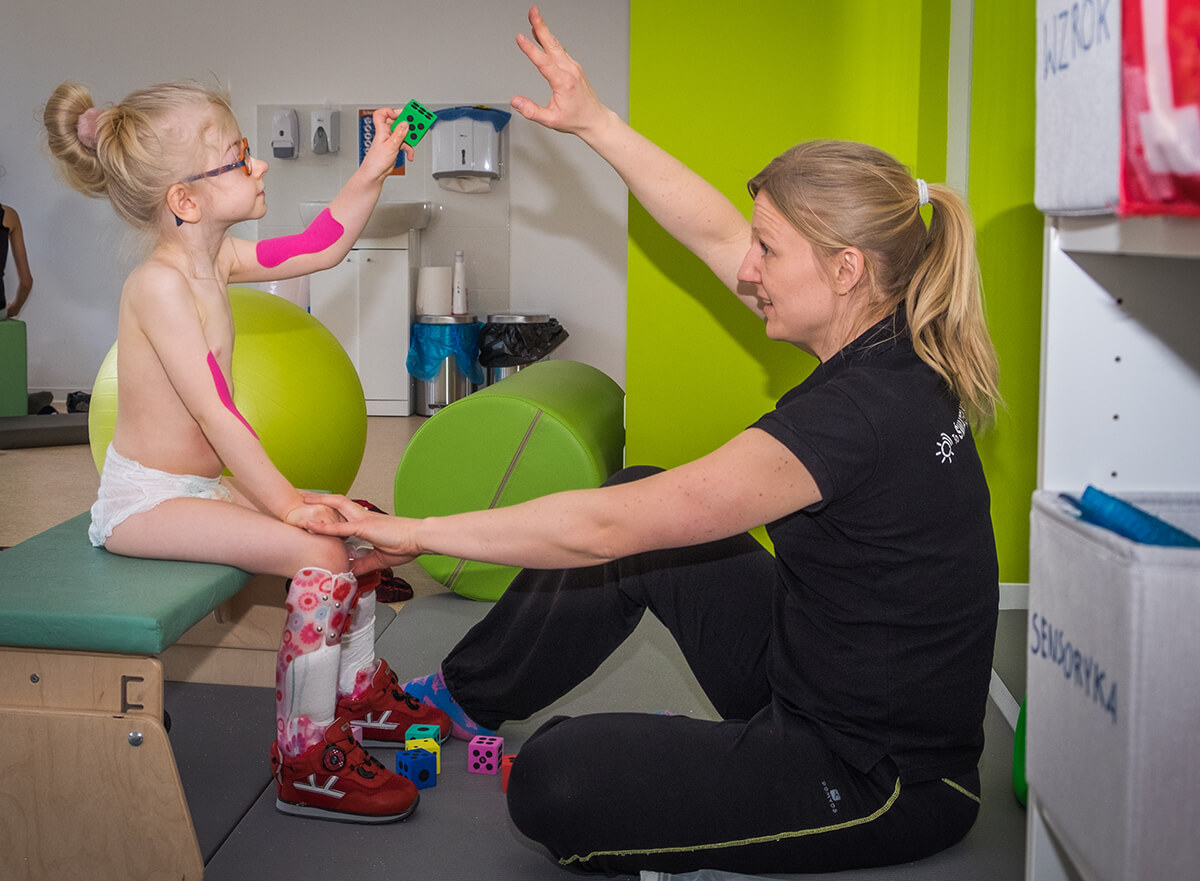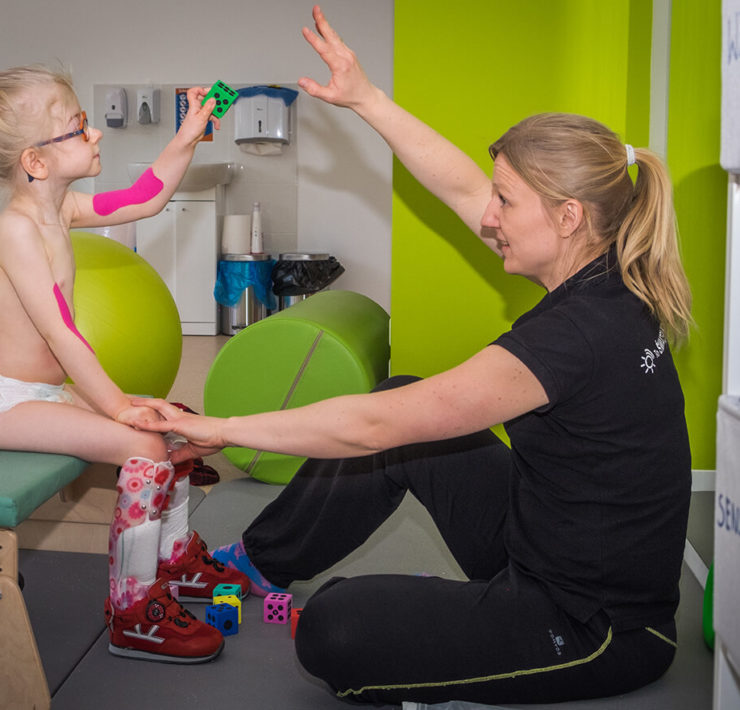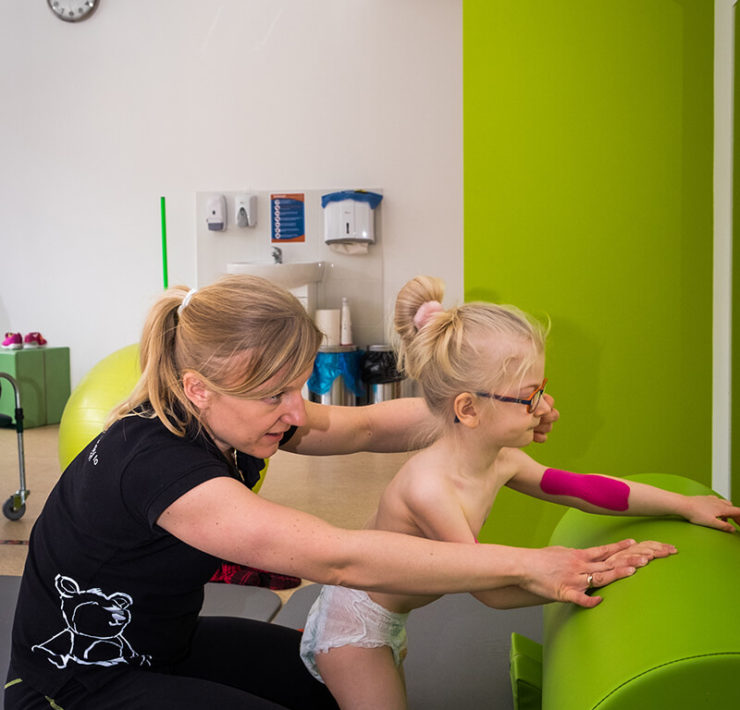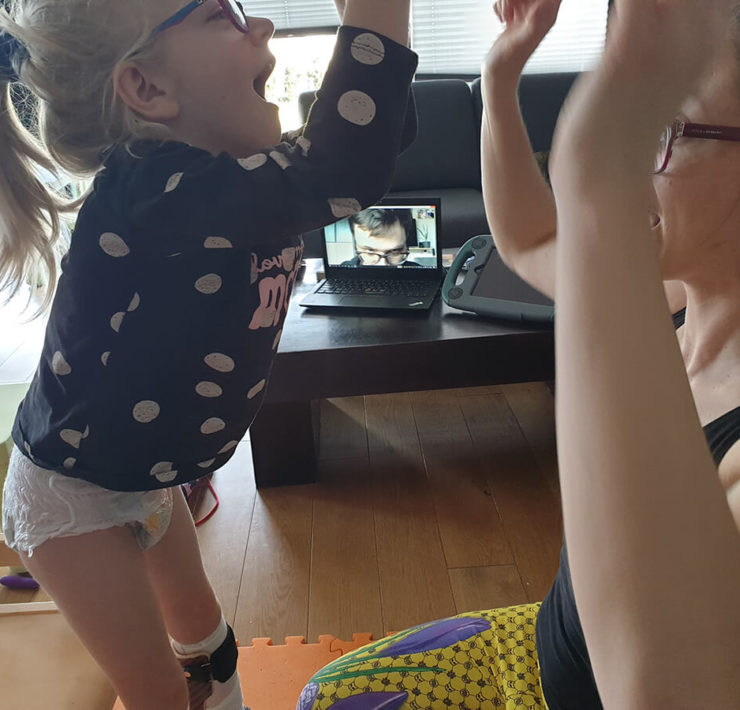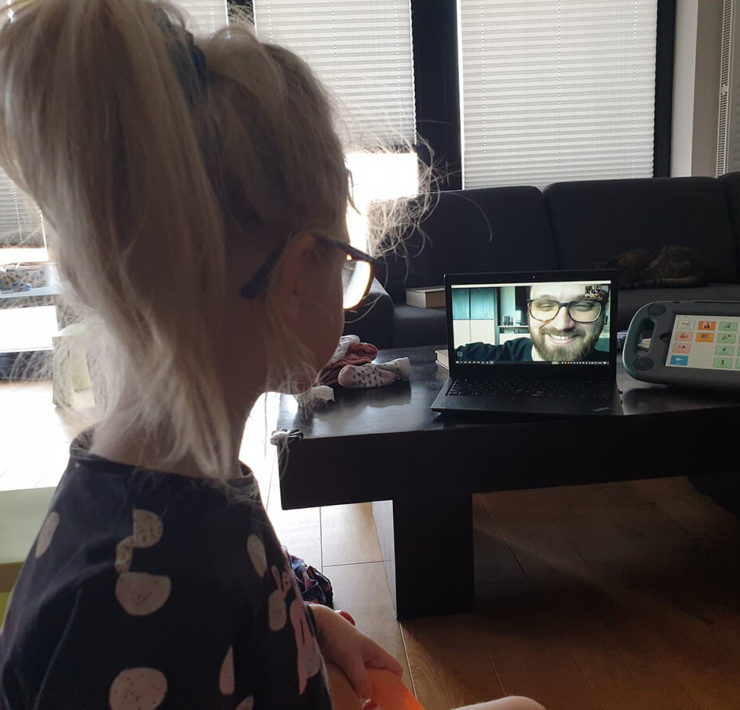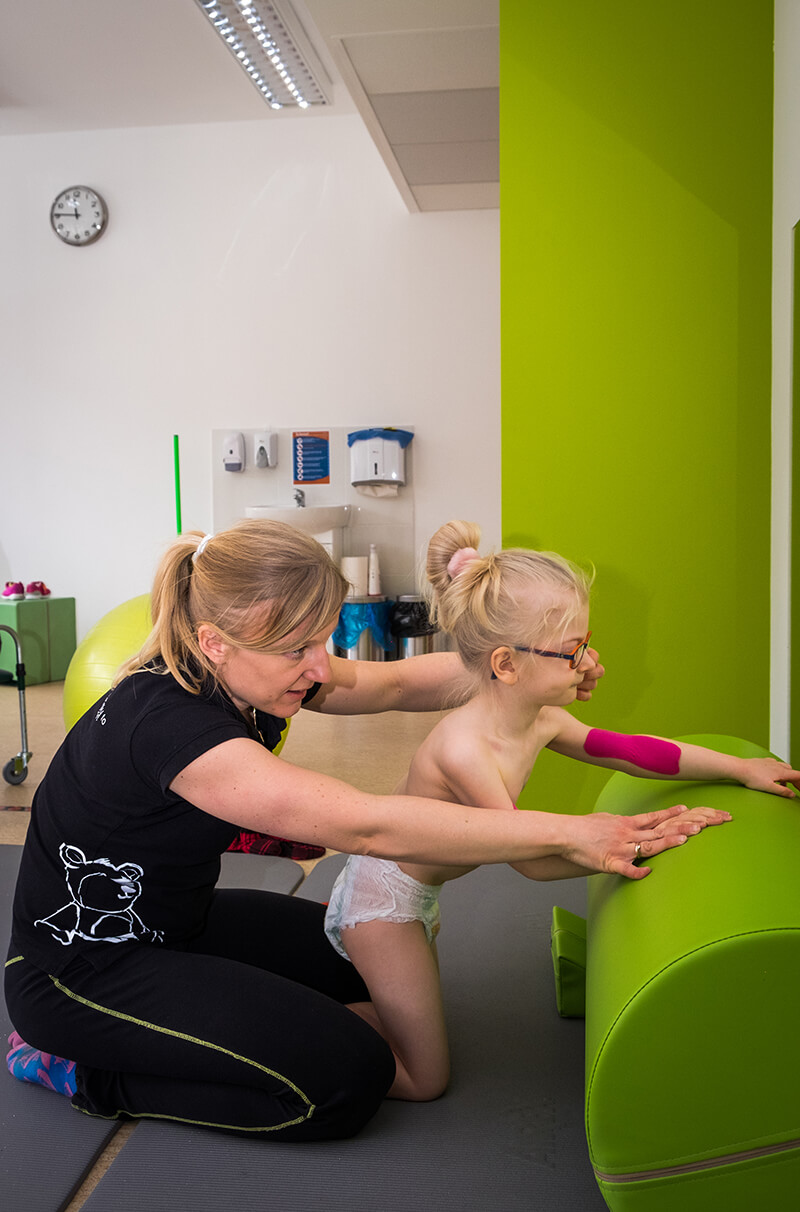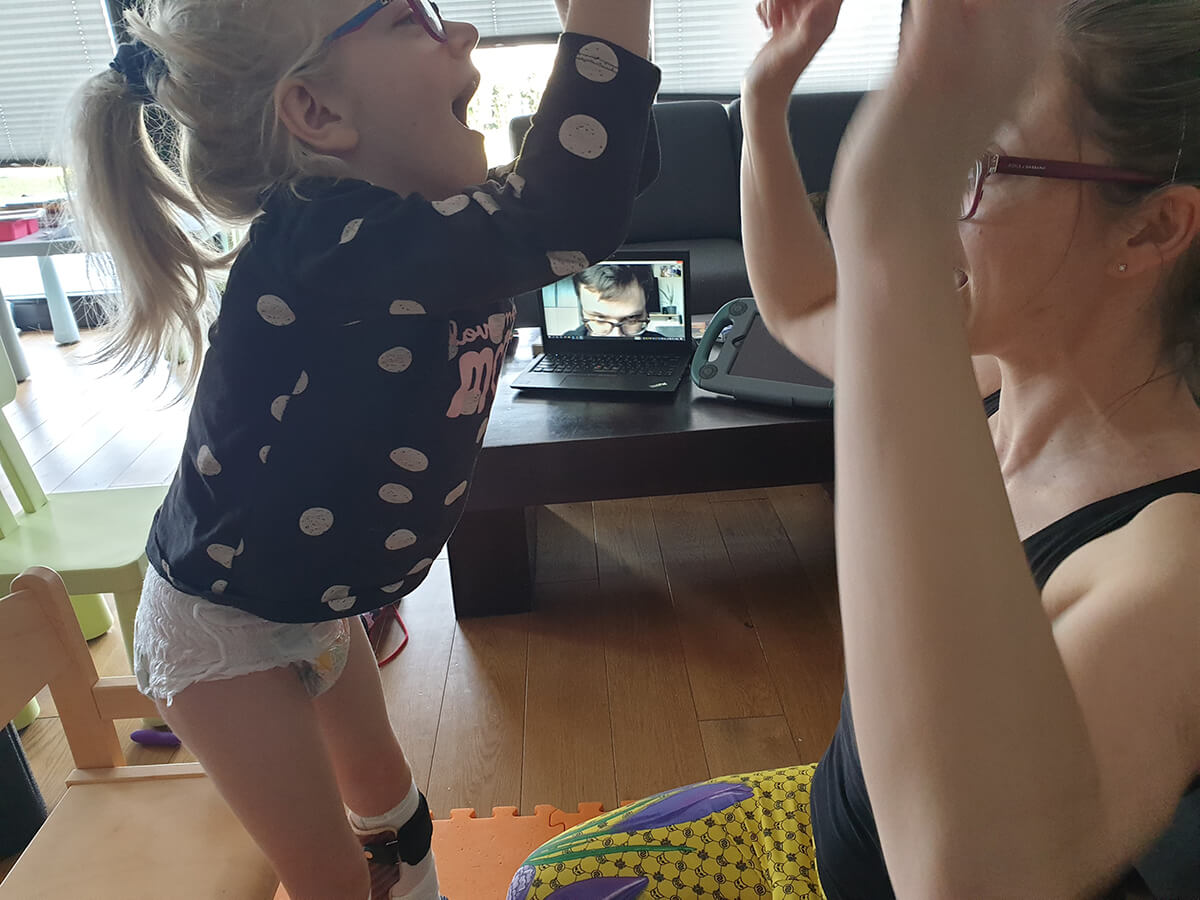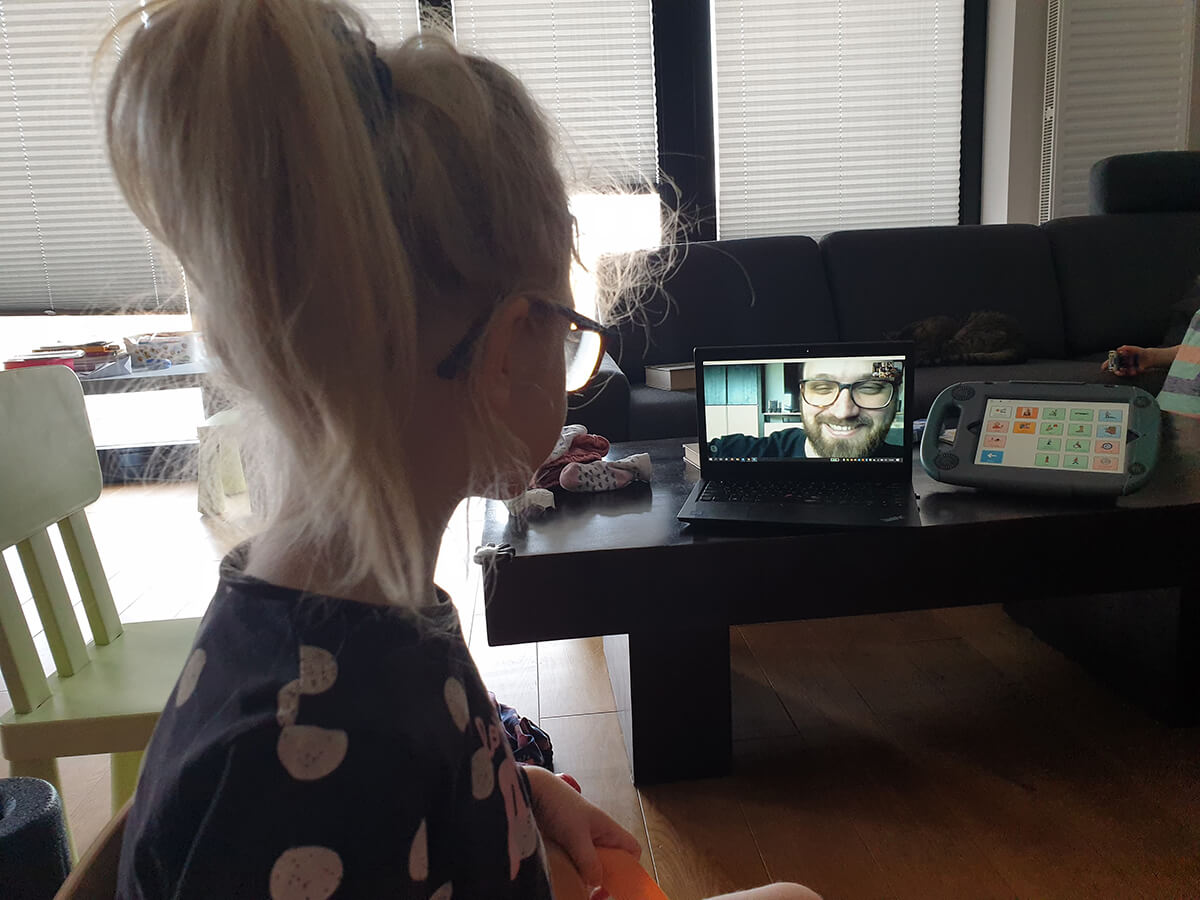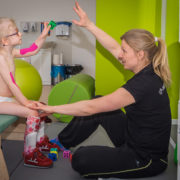
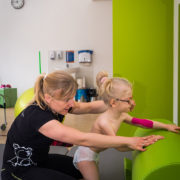
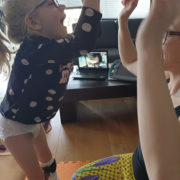
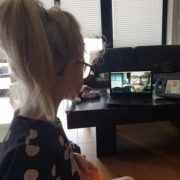
Aleksandra and Michał Izydorczyk, owners of the Brave Bear Institute of Functional Therapy, talk with us about the declaration of help and crisis management strategies.
Aleksandra Mróz: Your declaration of readiness to support medical professionals during the epidemic is truly admirable. This initiative is an uplifting gesture and a good example that cooperation is what matters most in challenging times. Fortunately, the epidemiological situation in the moment of this interview does not require you to stand in the front line. How do you satisfy your desire to help?
Michał Izydorczyk: In my opinion this is the time for consolidation of physiotherapeutic community and immediate action should be taken. I am observing how the event and hotel industry are coping with the pandemic – they very quickly joined their forces and began negotiations with the government to ensure financial support for their professions. I believe that, as physiotherapists, we ought to do the same. KIF is our only representative body. If we wish to receive any institutional help as an occupational group – it shall only be achieved through cooperation with the Chamber. I have been invited to work in the KIF crisis management board almost immediately after sending my letter. I am very glad that my long-standing experience obtained while working at large institutions appears to be useful now.
What is your assessment of the actions undertaken by the board?
MI: Work in the crisis management board has a multi-threaded character and priorities are clearly defined. I must admit that it functions similarly to a well-organized corporation. However, I feel that there is a lot of work to be done outside of the crisis management board. It is important for public opinion to notice problems resulting from the closing physiotherapy offices and facilities. In our case, the lockdown means suspension of regular therapy for disabled children. We tried to draw a little media attention to this problem. One of our patient even appeared as a guest in a TV coverage broadcasted on a big internet portal, while other materials are waiting to be published in press. We are aware that, as a community, we don’t have much time to prevent the worst-case scenario. Many people employed in private clinics were made redundant on the last day of March.
How is your facility dealing with this challenging situation?
MI: We closed our Institute on the day the KIF recommendations were issued. We therefore haven’t seen any patients since the 13th of March. A decision to suspend our work has also been made for the sake of our young patients. Since we provide therapy for disabled children with immunodeficiencies, we recognize that coronavirus infection may cause them to suffer from serious health complications. It is a big institution – we hire 26 people, mostly physiotherapists, but also psychologists and clinical speech therapists. We care for more than a hundred children every day, who spend a lot of time at our clinic, since they require regular and complex rehabilitation.
What are the consequences of closing your facility?
MI: First of all, we have a large financial problem. Our model of functioning as a company is a little atypical for physiotherapeutic industry, since our healthcare professionals work here under a contract of employment. Choosing this form of employment was our own decision, made at the beginning of our business activity. We strive for some normality in this profession, also in terms of labour law. We believe that people have the right to experience stability and safety at work. Moreover, we also wanted to be competitive on the job market and create attractive employment conditions for the best specialists, encouraging them to work with us. Our employees appreciate the fact that they are still receiving normal remuneration, unlike their fellow physiotherapists who lost livelihood opportunities overnight. On the other hand, it is a very difficult situation in terms of company’s finances. Covering the costs of maintaining 26 posts is a huge burden. This is why we have been putting a lot of effort in creating a survival strategy for our company from the first day of lockdown. We hope that our patients will come back to their physiotherapists after the epidemiological situation calms down a little and we will manage to get out of this trouble.
Aleksandra Izydorczyk, MSc in Physiotherapy: However, we are aware that our patients will still face a threat of getting infected when we will be allowed to reopen the clinic. We are therefore planning to take all necessary precautions, such as working in protective clothes. It concerns especially those patients whose rehabilitation achievements regressed during the pandemic. This problem is true e.g. for patients suffering from respiratory disorders due to muscular atrophy.
What strategies have you adopted so far and what do you do for your patients?
MI: We have started analysing different scenarios. Considering our saved capital and current costs, the situation isn’t very optimistic. Thanks to cutting all unnecessary costs, these financial resources will allows us to pay remunerations for March. We are struggling to make even the smallest savings – we have turned off all fridges, returned our water dispenser. However, there remain three significant costs which cannot be eliminated – remunerations, ZUS (social insurance) and rent.
Remunerations for April cannot be fully covered, as we still need money to pay 5 of our employees. We are very honest with our employees, they are aware of our financial situation. We suggested that all workers agree to a 25-50% decrease in their remuneration, so that everyone could receive their salaries. Nonetheless, we are going to enter May with an empty account. If we are not back to work or if we don’t receive direct and rational financial aid by this time, the perspective of bankruptcy becomes dangerously real.
Of course, we could make all of our employees redundant even in March but we do feel responsible for them. It is them who helped us build this company and making them live hand to mouth would simply be unfair.
What is the most difficult aspect in maintaining your business right now?
MI: The most difficult is definitely the fact that nobody knows how long this situation is going to last. If we knew that we would be allowed to go back to work in May, we would be able to create some scenario in our heads. But what if the lockdown lasts until September or November? We are constantly trying to answer the question of how much money we are able to borrow and how we are going to support our team? Our plan only reaches as far as to the end of April.
Are you expecting to receive some financial aid?
MI: It is difficult to expect the government to offer us a very big package of financial support right now. But it is definitely worth trying. For now we know that we can only count on ourselves. When it comes to rent – which in our case is rather high – it has not changed so far. Maybe if this property was owned by the city, we would stand a chance for some rent reduction. Unfortunately, we rent our premises from a state-owned enterprise which has not agreed for temporary rent reduction.
Is there anything else that you can do?
MI: We are trying to run our company on a minimal level and are struggling to generate some revenues. We are focusing on continuing therapy for our patients by using modern communication technologies. Since we specialize in neurological physiotherapy, we are fully aware that cessation of physiotherapy might result in regression of our patients’ functional condition. That is why we decided to introduce online consultations immediately after the lockdown was announced, which allowed us to meet the needs of our patients and satisfy our own needs at the same time.
AI: Our patients suffer from many different diseases: various genetic syndromes, cerebral palsy, meningo-spinal hernias. We admit premature babies and other children with health risks. In fact, we do not provide physiotherapy services to the so-called healthy children. Closing our Institute caused feelings of anxiety among our patients. At that time, we knew we had to offer them some alternative solutions to continue therapy. And the only safe option was online consultations. Obviously it was not easy. Not all of our patients have sufficient intellectual abilities to understand the tasks given by physiotherapists. And not all of them possess the right equipment in their homes.
How does online therapy look like?
AI: The first step includes an online video tour around a patient’s house. That way our therapists can see what equipment and toys are available at their patients’ homes, which allows them to create an effective therapy plan. We then organize a special physiotherapy corner with a little help from parents and explain to our young patients that, from now on, this is going to be his or her work space. Taking a break from everyday routine and changing the order of daily activities might be challenging even for healthy children but they are usually able to successfully cope with changing circumstances. However, when it comes to our patients, they often seem to be experiencing some additional autostimulations, which only exacerbate the consequences of the lack of appropriate movement.
Another important aspect is to calm down our patients’ caretakers, offer support and give them a sense of security. Reassure that, along with a qualified physiotherapist, they are still able to help their child.
Having completed all of the above, we present daily and weekly plans for our patients. All of their activities are carefully organized: work with physiotherapist and other specialists, time for verticalization, meals, play, rest, possible walk (only when it is safe). This acquaints our patients with a new and safe daily routine.
After preparing all plans, we are ready to commence our online physiotherapy sessions, in which a physiotherapist directs the movements of a child’s caretaker and corrects the patient’s position whenever needed. With very young children or the ones with intellectual difficulties, the therapist might demonstrate exercises to the parent using a doll. We are also creating new methods of playing with children e.g. by passing them toys in a specific way, so to provoke them to do a desired movement. Work summaries and eventual recommendations are sent to the parents after every completed therapeutic session.
Are parents satisfied with this type of physiotherapy?
AI: Those who decided for online consultations – yes. Those parents that admit their children are eager to work with favourite physiotherapists. And the parents themselves gained more confidence by realizing that, when supervised by a specialist, they are able to prevent the negative effects of traditional therapy interruption – a lot of our patients have already experienced painful contractures in the lower limbs.
Have many families already benefited from your online offer?
AI: It isn’t a very large group of patients. We recognize that many people have a distrustful attitude towards online physiotherapy. However, we hope that – as quarantine prolongs and the number of satisfied parents grows – more caretakers will decide for this form of therapy. We too, as physiotherapists, must switch to a different work mode. Acknowledge that the information and experience we possess are invaluable and, if conveyed appropriately, can be of great help.
MI: Although online physiotherapy does not have a significant influence on our current financial situation, I have to admit that the positive opinions about this form of therapy that we have received encourage us to include online consultations in our permanent offer.
Thank you for this conversation, I wish you the best possible ending of this crisis.
Ewa Matkowska, mother of a 5-year-old Kornelia
Interruption of therapy is our catastrophe
Kornelia, who has made large progress for the past six months in various therapeutic fields – verticalization, walking, hand function, alternative communication – already presents negative effects of the lack of daily physiotherapy sessions. There is no better term to describe interrupted physiotherapy other than a catastrophe! That is precisely why we can’t allow this to happen and we should take advantage of every opportunity to continue treatment. We live in the 21st century, so if my son attends online classes at school, then why couldn’t we try online physiotherapy?
Two therapeutic facilities which provide therapy for Kornelia have introduced such an option so far. Under the eyes of physiotherapists, we are able to continue treatment with the use of e.g. Vojta and Bobath methods. We join a videoconference with specialists and he explains to me what I should do and corrects my movements. I am the hands of a physiotherapists – a bit clumsy though. Without his help, I would probably do it all wrong or wouldn’t be able to do anything at all.
I am actively trying to convince the mothers I know to try online physiotherapy. To be frank, on our first class I too wasn’t sure if this was all going to work but I quickly realized that, with a little good will from both sides, we can ensure valuable physiotherapy practice for my child.
Parents are afraid of this solution because it’s something they don’t know, something new. I can imagine physiotherapists are afraid too, as they are used to work with their own hands and now they need to use somebody else’s hands, often unqualified. It is a very challenging project but we are the best example that it is possible.
Ewa Mazur, mother of a 10-year-old Kuba
A bit of normality
We are the lucky ones, since our child is relatively able-bodied. Kuba is 10 years old and he intellectually surpasses his peers, he can walk by himself. So in our case they key thing is to ensure appropriate type of movement for him during quarantine, to maintain his muscle strength, that we have been working on for 10 years of his life.
We have therefore been using telerehabilitation via Skype for about a week now. We exercise for one hour, three times a week. I’m very glad because I can see that Kuba truly dedicated himself to exercising, he finishes covered in sweat, he really works very hard. At the beginning of our online sessions, we established a therapeutic plan with our therapist, defined our priorities and the elements that we need to work on right now. We decided to focus on improving abdominal and gluteal muscle strength.
If not for online therapy, I myself would exercise with Kuba at home. But I think we all know how it really looks – physiotherapist is an authority to a child. Moreover, I am completely unqualified for the job, I wouldn’t be able to assess whether a specific exercise is appropriate for my son at a particular stage of therapy. I also wouldn’t know if we’re doing it the right way. Of course our physiotherapist finds it more difficult to control and correct our movements during online consultations, when compared to normal meetings. But this is our tiny bit of normality right now and it matters most.
Agnieszka Jóźwicka, mother of a 4-year-old Olinek
Our world began to crumble
Olinek received A to Z care at the Institute. He was making a significant progress, considering his health condition. But now our world is starting to crumble, we have never had such a long break from physiotherapy and I can already see that our problems begin to exacerbate. Spasticity of the legs has increased significantly and painful muscle contractions start to occur overnight. We are massaging him more often, provide him with a hot-water bottle, often administer analgesics, since the pain won’t let him fall asleep. The central part of his body has become weaker, his movement precision deteriorated and I have also noticed more frequent muscle contractions in his legs and arms.
Olinek has some difficulties in adapting to this new situation. It is partly because of his young age but it also results from his disability – he doesn’t fully understand what’s going on. He misses his therapists and he won’t necessarily allow me to rehabilitate him – a mother is a mother, after all. Thankfully, our clinic has offered us some help and launched online consultations, for which I am very grateful. I have read a lot of opinions in the Internet, written by parents who believe that such a form of therapy is pointless. In my opinion, online physiotherapy makes sense and I am saying this as a mother who is completely confused by the current situation. I don’t know how to rehabilitate my son, which exercises we should do or how to fulfill specific recommendations. And that is precisely why I think online consultation is a brilliant solution, since it mobilizes me as a parent. It gives me the so-called kick and also provides me with valuable information and educates at the same time. Furthermore, I feel much more confident when supervised by a physiotherapist. I am certain that when he observes what I do, he will be able to correct my mistakes and direct me on the right path. In terms of physiotherapy, he knows my child better than I do. I also feel much better taken care of, my mental comfort has significantly improved when compared to just a few moment ago, when I didn’t know that such online consultations would be organized. When I thought we would be left all alone.
The facility which provides physiotherapy for our son is a little bit like my second home – we have visited the Institute almost every day, I know the therapists and administration staff. I am really worried about their situation because I realize that, if the epidemiological situation is prolonged, such healthcare facilities will stop earning money. Their future is uncertain, which also means that the future of our child becomes unpredictable. If the Institute closes, we won’t have anywhere else to go. We have invested a lot of effort, money and emotional involvement in this therapeutic cooperation – which gave very good results. And now we’re facing the perspective of losing it all.


